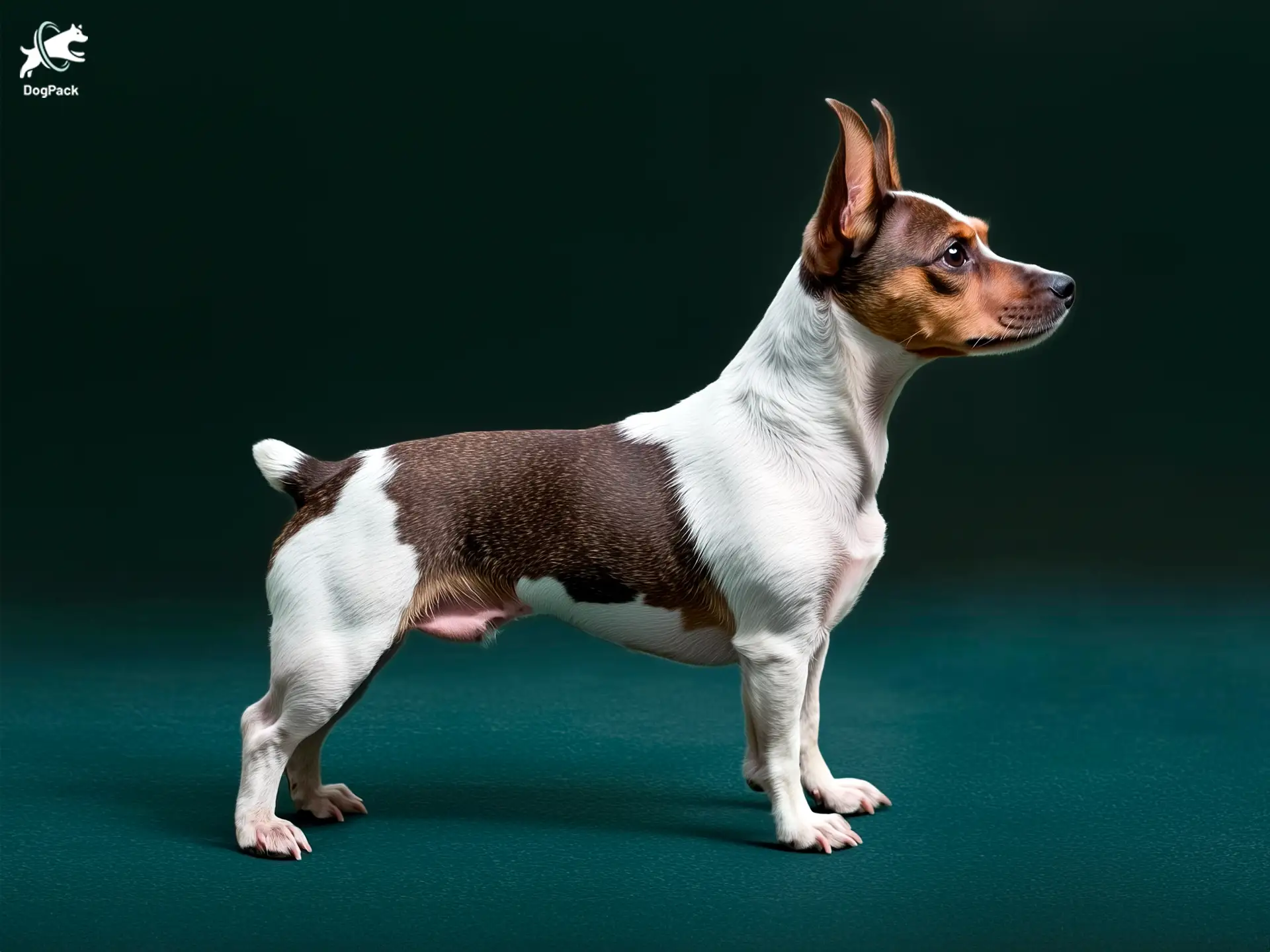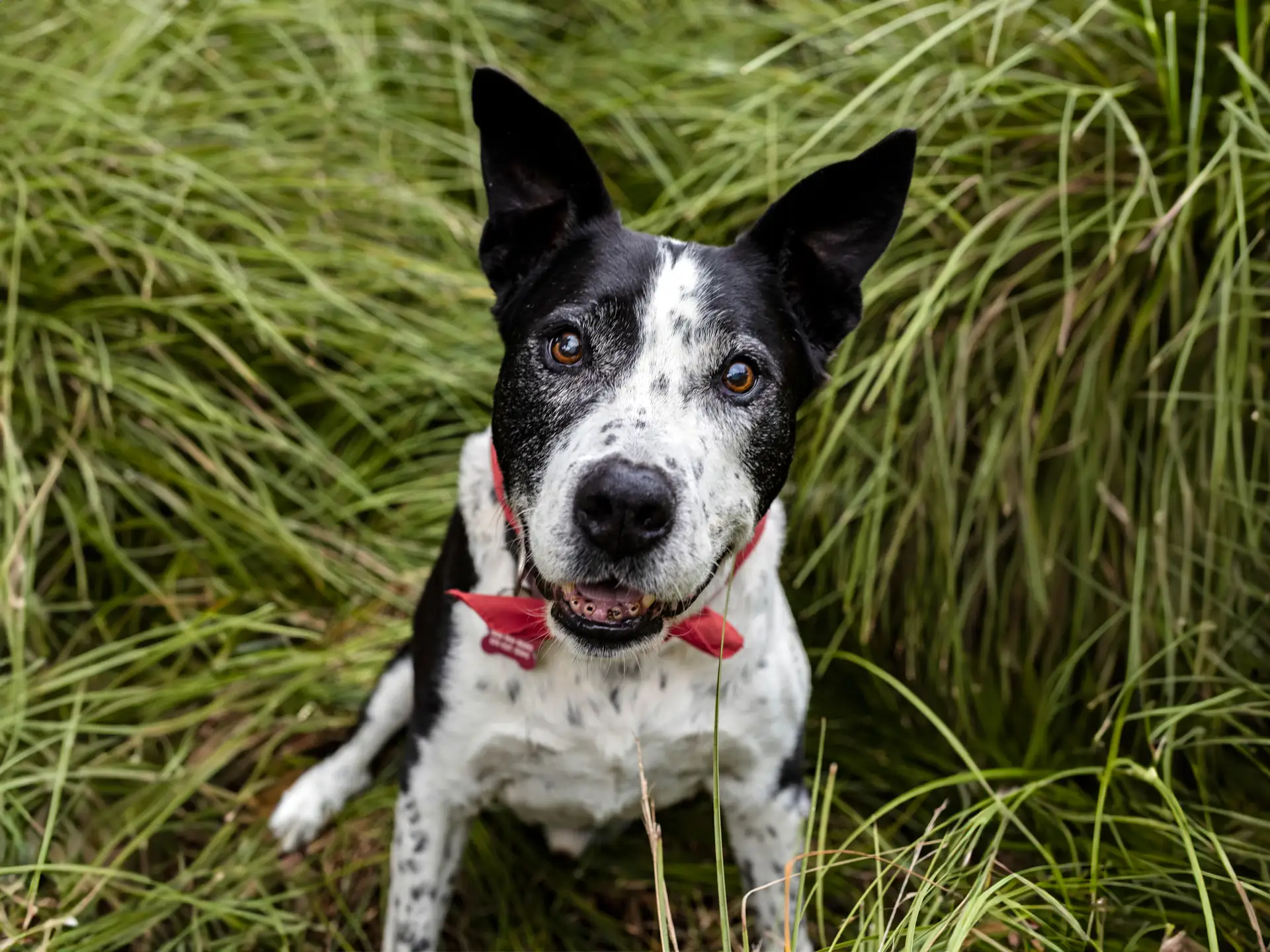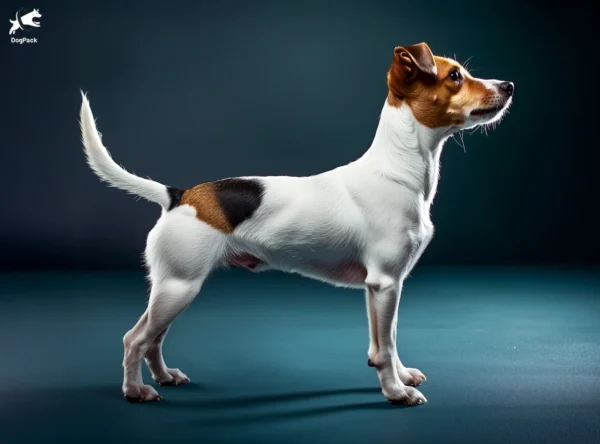Teddy Roosevelt Terrier Dog Breed Info & Overview
Imagine a pint-sized powerhouse brimming with energy and affection—that’s the Teddy Roosevelt Terrier! Despite their small stature, these dogs are fearless and full of character. Originating in the U.S., they were bred to tackle farm work and keep pests at bay, but their loyal, loving nature quickly earned them a place in the hearts of families. Spirited yet gentle, the Teddy Roosevelt Terrier is a wonderful companion for both play and snuggles.
Characteristics
Pictures
Breed History
The Teddy Roosevelt Terrier originated from early American Rat Terriers, bred specifically to control vermin on farms and homesteads. These small but tenacious dogs were essential to settlers, valued for their ability to hunt and exterminate pests. Their agility, determination, and work ethic quickly made them a staple of rural life.
Named in honor of President Theodore Roosevelt, who was known for his appreciation of working terriers, this breed was recognized as separate from the Rat Terrier in the 1990s. Unlike their longer-legged relatives, the Teddy Roosevelt Terrier is distinguished by its shorter legs, stockier frame, and more muscular build—traits that make them uniquely suited to ground work.
As the breed evolved, the Teddy Roosevelt Terrier became known not just for its hunting ability but also for its loyalty and adaptability as a family pet. Recognized by major kennel clubs, their legacy continues today, preserving their strong lineage and ensuring their unique characteristics remain a part of future generations.
Temperament, Personality
These terriers are known for their affectionate and loyal nature. They form strong bonds with their families and enjoy being involved in daily activities. Their playful demeanor makes them a joy to have around the house.
With children, they are typically gentle and patient, making them excellent family-friendly dogs. Early socialization helps ensure they interact well with kids of all ages, fostering a harmonious household.
When it comes to other pets, they can coexist peacefully, especially if raised together. Their hunting instincts may kick in around small animals, so supervision is advised. They tend to be friendly with strangers but can be alert watchdogs.
Physical Characteristics
This breed is a small, muscular dog with a sturdy build. Their legs are slightly shorter in proportion to their bodies, giving them a low center of gravity and a distinctive appearance.
They have a short, smooth coat that comes in various colors and patterns, including bi-color and tri-color combinations. Their coats are easy to maintain, adding to their appeal as low-maintenance pets.
Their expressive eyes and alert ears give them an intelligent and inquisitive look. Overall, they present a compact yet athletic appearance, ready for both play and work.
Health Issues
Generally, they are a healthy breed with few major health concerns. However, like all breeds, they can be prone to certain genetic conditions such as patellar luxation and hip dysplasia.
Regular veterinary check-ups are important to monitor for any developing issues. Responsible breeders screen for genetic conditions to minimize the risk in puppies, ensuring the long-term health of the Teddy Roosevelt Terrier.
Maintaining a healthy weight through proper diet and exercise can prevent many health problems. Dental care is also important, so regular teeth brushing is recommended to keep their smiles bright.
Grooming Needs
Their short coat requires minimal grooming. A weekly brushing with a soft-bristle brush or grooming mitt can help remove loose hair and keep their coat shiny.
Bathing is only necessary when they get particularly dirty, as frequent baths can strip natural oils from their skin. Use a gentle dog shampoo to maintain coat health and prevent irritation.
Regular nail trimming, ear cleaning, and dental care should be part of their grooming routine. This ensures they stay comfortable and reduces the risk of infections, making them an easy-to-groom breed.
Exercise Requirements
They have moderate to high energy levels and enjoy daily activities. A good mix of walks, playtime, and mental stimulation keeps them content and well-behaved.
They excel at canine sports like agility and obedience, which tap into their intelligence and athleticism. Interactive toys and puzzle games are also great for mental exercise, preventing boredom.
Without sufficient exercise, they may become restless and exhibit unwanted behaviors. Engaging them in family activities ensures they stay happy and fit, much like other active breeds.
Training Tips
They are intelligent and eager to please, making them responsive to training. Positive reinforcement techniques work best, rewarding good behavior with treats and praise.
Consistency is key, as they can be a bit stubborn at times. Early socialization and obedience training help them develop into well-mannered adults, showcasing the best of the Teddy Roosevelt Terrier’s abilities.
Avoid harsh corrections, as they can be sensitive to tone. Keeping training sessions fun and varied maintains their interest and accelerates learning.
Nutrition, Diet
A high-quality dog food formulated for small breeds is ideal. They benefit from diets rich in protein to support their active lifestyle and muscle development.
Portion control is important to prevent obesity. Typically, they require about 1/2 to 1 cup of dry food per day, divided into two meals. Adjust amounts based on activity level and metabolism to meet the specific needs of the Teddy Roosevelt Terrier.
Some may have food sensitivities, so monitoring their reactions to certain ingredients is helpful. Fresh water should always be available to keep them hydrated throughout the day.
Adoption, Breeders
When looking to bring one into your home, consider reputable breeders who prioritize health and temperament. Ask for health clearances and meet the puppy’s parents if possible to gauge future behavior.
Adoption is also an option, as rescue organizations occasionally have them available. The Teddy Roosevelt Terrier Club of America provides resources for finding breeders and rescues.
Additional information can be found at the United Teddy Roosevelt Terrier Club of America. Connecting with the breed community can offer support and valuable insights.
Family Pet?
They make excellent family pets due to their affectionate and friendly nature. They thrive on companionship and enjoy being part of family activities, bringing joy to households.
With children, they are playful and patient, often forming strong bonds similar to other dog breeds great with kids. Supervision is recommended with very young kids to ensure gentle handling.
They can get along with other pets, especially if socialized early. Their compatibility with cats and small animals may vary due to their hunting instincts, so introductions should be managed carefully.
Right For You?
If you’re looking for an energetic and loyal companion, they could be a great match. They do well in homes where they receive plenty of attention and exercise, fitting well with active lifestyles.
They adapt to various living situations, from apartments to larger homes, provided they get enough physical activity. Their small size makes them suitable for smaller spaces, but they still need engagement.
Potential owners should be prepared for an active dog that enjoys participation in family life. Time for training and socialization will help them thrive, making the Teddy Roosevelt Terrier a rewarding addition.
Conclusion
In summary, the Teddy Roosevelt Terrier is a delightful blend of energy, intelligence, and affection. They make wonderful companions for individuals and families who can provide them with love and activity. With proper care, training, and socialization, they become loyal and entertaining members of the household. If you’re seeking a small dog with a big heart, this breed might just be the perfect addition to your family.
FAQs
-
Is the Teddy Roosevelt Terrier hypoallergenic?
No, the Teddy Roosevelt Terrier is not considered a hypoallergenic breed. They have a short coat that sheds moderately, which may trigger allergies in sensitive individuals.
-
How much does a Teddy Roosevelt Terrier puppy cost?
The price of a Teddy Roosevelt Terrier puppy can vary, typically ranging from $500 to $1,000, depending on the breeder, lineage, and location. Always choose a reputable breeder who prioritizes health and temperament.
-
Do Teddy Roosevelt Terriers bark a lot?
They can be vocal and may bark to alert their owners of strangers or unusual activity. Proper training and socialization can help manage excessive barking behaviors.
-
Are Teddy Roosevelt Terriers good apartment dogs?
Yes, they can adapt well to apartment living as long as they receive adequate daily exercise and mental stimulation. Their small size and moderate exercise needs make them suitable for smaller spaces.
-
What colors do Teddy Roosevelt Terriers come in?
They come in a variety of colors and patterns, including white with black, tan, or tricolor markings. Their coat patterns are diverse, adding to their unique appearance.
Breed Ratings
Highly intelligent and quick learners, they respond well to training and enjoy mental challenges.
Extremely playful, they love games and activities, making them fun companions for both kids and adults.
They have a moderate to high energy level, needing daily exercise to keep them content and prevent boredom.
They shed moderately, requiring regular brushing to manage loose hair and keep their coat healthy.
With a strong hunting instinct, they may chase small animals, so supervision and training are important.
Their short coat is easy to maintain with minimal grooming needs, making them low-maintenance in this area.
Eager to please and intelligent, they are highly trainable with positive reinforcement methods.
They prefer company and may become anxious if left alone for long periods; not ideal for owners who are away often.
They can be vocal, alerting owners to strangers or unusual noises; training can help manage excessive barking.
Minimal drooling makes them a tidy choice for owners who prefer a cleaner home environment.
Generally friendly with other dogs, especially if socialized early, they enjoy canine companionship.
A generally healthy breed with few major health issues, especially when sourced from responsible breeders.














